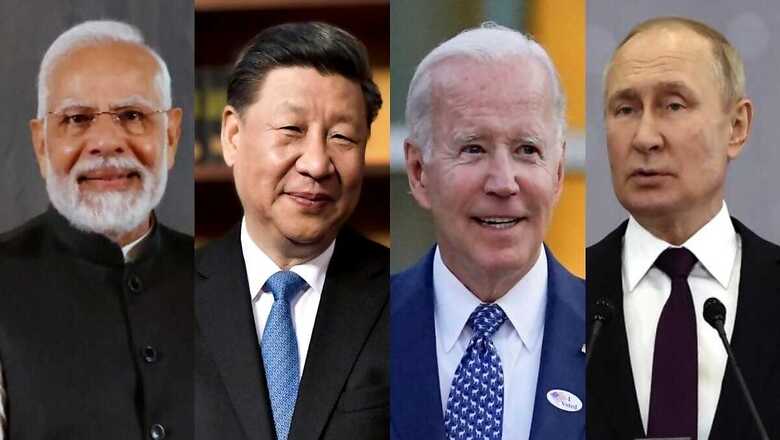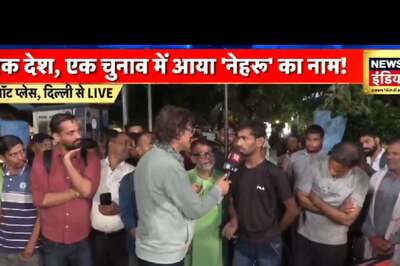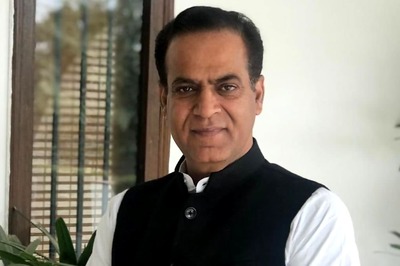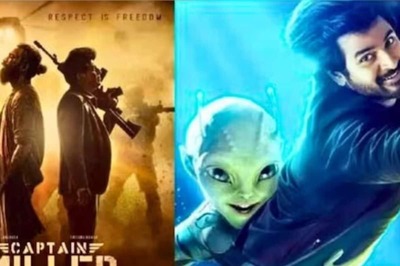
views
In the current global landscape, Ukraine finds itself embroiled in a protracted conflict with Russia, leading to destruction within its borders. Simultaneously, China’s rapid economic rise poses a threat to the West’s economic dominance. Amidst these geopolitical shifts, there is an ongoing effort to promote de-dollarisation and establish the BRICS currency as a viable alternative. However, this move potentially undermines the economic interests of the Western deep state, some of whom are taking action. Notably, George Soros, the founder of the Open Society Foundation, has announced a billion-dollar fund to replace India’s Prime Minister, Narendra Modi. This article delves into the motivations behind such actions and the potential risks India faces.
The ongoing conflict between Ukraine and Russia has caused immense devastation within Ukraine. The roots of this conflict lie in the North Atlantic Treaty Organisation (NATO) eastward expansion and its counterpart, the Western deep state regime change operations in Ukraine (also funded through Soros NGOs), Ukraine’s aspirations to join NATO, all of which posed a direct threat to Russia’s strategic interests. While we may acknowledge the illegitimacy of Russia’s invasion, it is crucial to recognise the underlying geopolitical dynamics at play. The situation in Ukraine serves as a stark reminder of the perils nations face when caught between major power rivalries.
China’s economic ascent has instilled a sense of unease in Western nations as it has the potential to surpass the West, economically, in the near future. This, along with the efforts to float the BRICS currency and pursue de-dollarisation, aiming to reduce reliance on the US dollar has unnerved many nations. Several countries, including Saudi Arabia, the UAE, and 25 others, have expressed interest in this initiative. However, such a shift could result in significant economic losses for Western billionaires, prompting some of them, like George Soros, to take action.
George Soros, known for his ‘philanthropic’ endeavours and political meddling, has announced a billion-dollar fund to replace India’s Prime Minister, Narendra Modi. The motivations behind this move lie in Modi’s steadfast pursuit of what is in the best interest of India, such as buying Russian gas in spite of the West’s bullying tactics and its refusal to become a vassal state of Western deep state interests to accomplish its objectives in Asia. Moreover, a rising India will become another challenge to Western domination after China. Just as Ukraine is being used as a sacrificial pawn to contain Russia, it is the Western deep state’s desire to use India as a sacrificial pawn to contain China. If India is destroyed in a process similar to Ukraine, it serves even better to the Western deep state strategy of halting the rise of India. But these plans are put to the ground while the Modi government is in power.
Here is where the convergence of interests of Rahul Gandhi and Soros raises concerns about potential collaboration against Modi’s government can be seen. It is a well-known fact that Salil Shetty, Global Vice President of the Open Society Foundation, walked with Rahul Gandhi during his Bharat Jodo Yatra. This convergence is more apparent during Rahul Gandhi’s visit to the US where the same players – Sunita Viswanathan, Indian Americans Muslim Council, Muslim Brotherhood and known ISI-supported organisations – who are active against the Modi government’s policies such as CAA in the US have been constantly engaging in anti-India agenda. In fact, some outlets are alleging that Rahul Gandhi’s US trip is completely funded by Soros and his operatives.
What’s more ominous are some of the statements made by Rahul Gandhi in the US such as ‘Modi is not ready to take on China’ and quoting External Affairs Minister, S Jaishankar, that China is economically too powerful. For whom is he making this public stand? Is it Soros? Are they suggesting that India should go for an all-out war against China to serve Western interests?
PM Modi has displayed a balanced approach in dealing with China. India has firmly defended its borders and stationed troops at the Line of Actual Control (LAC), resulting in tense standoffs and the death of many Chinese soldiers. India has taken steps to present itself as a dependable partner in the global supply chain and actively counter China’s influence, has collaborated with Western defence companies in joint defence production and refused to buy 5G equipment from China, and has refrained from engaging in a full-blown war that could harm its national interests and development.
If Rahul Gandhi and Soros join hands, their collective efforts could involve leveraging their resources, intelligence and influence to exploit India’s fault lines and challenge the narratives of development and peace fostered by Modi over the past nine years. As we see what is happening in Manipur, or accidents in Odisha with the labelling of ‘infrastructure failure’ by the Opposition, and chaos in Maharashtra’s Kolhapur district, we perhaps need to start connecting the dots as more such narrative-breaking incidents will unfold in the run-up to 2024 elections.
With Soros’s proven credentials in regime changes and the use of top talent with strong ground force (NGOs, dubious ‘service’ organisations), along with some Indian politicians willing to compromise national interests for power, India can potentially be irreparably harmed and even face a crisis of existence as a nation.
The complex geopolitical landscape encompasses Ukraine’s struggle with Russia, China’s economic threat to the West, and their desire to use India as a sacrificial pawn. What the voters decide in 2024 will matter to Indians for the next 100 years.
Satya Dosapati is a US-based activist who has played a critical role in the introduction of paper trail for India’s Electronic Voting Machines called VVPAT; Souptik Mukherjee has a doctorate in Computer technology. Views expressed are personal.




















Comments
0 comment